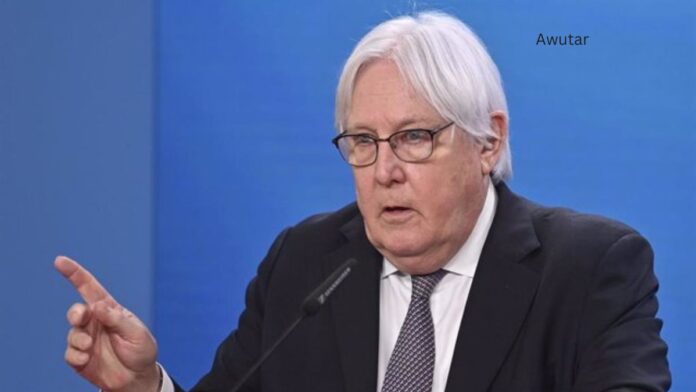The United Nations Assistant Secretary General for Humanitarian Affairs, Martin Griffiths, called this Wednesday the bombing carried out on Tuesday by Israel against the Jabalia refugee camp, the largest in the Gaza Strip, an “atrocity”, after the authorities of the enclave, controlled by the Islamic Resistance Movement (Hamas), reported “hundreds” of victims, including deaths and injuries.
Griffiths, who visited Israel and the Occupied Palestinian Territories over the last two days, has indicated that “numerous civilians” would have died in the attack, which he described as “the latest atrocity endured by the people of Gaza, where the fighting have entered an even more terrifying phase, with increasingly dire humanitarian consequences.
“October 7 and its consequences will leave indelible scars on the lives of millions of people,” he lamented, before stating that “in Israel, a nation was left shocked after the brutal murder of some 1,400 people” in the attacks carried out. by the Palestinian Islamist group, while “the families of more than 200 hostages continue to live in anguish, without being clear about the fate, well-being and whereabouts of their loved ones.”
He also emphasized that “in Gaza, women, children and men starve, are traumatized and die under bombs.” “They have lost all faith in humanity and all hope for the future. Their desperation is palpable,” she stressed, according to a statement published by his office.
“In the West Bank, the death toll is increasing. Violence and the closure of checkpoints mean that people cannot access food, work, medical care and other essential services,” he detailed, while lamenting that ” Meanwhile, the world seems unable or unwilling to act.
“This cannot continue like this. We need a change of step. We need the hostages to be released immediately and unconditionally. We need to be able to deliver the essential goods necessary for survival, particularly water, food, medicine and fuel, in a manner safe, immediate and in the appropriate quantity,” he argued.
Along these lines, Griffiths has pointed out that “the more than 200 trucks that have crossed into Gaza so far after painful negotiations provide some relief, but they are by no means enough”, which is why he has stressed that “the parties in conflict must agree to pauses in combat.”
“This is the only viable way to deliver goods to Gaza at this time. Repeated humanitarian pauses would allow us to deliver more aid to those in need in Gaza, reducing the suffering of the population and the risk of civil unrest,” he noted. while reiterating that they would also serve “for the sick and injured to seek medical attention and for those who want to flee to do so safely.”
For this reason, he has elaborated that the parties “must respect their obligations under International Humanitarian Law, including taking constant care when carrying out military operations to avoid damage to civilians and civilian objects.”
“We need those with influence to use it to ensure respect for the rules of war, reduce hostilities and prevent a spread (of war). A failure to act now will have consequences far beyond the region, because this is a global crisis,” he concluded.
The attacks carried out on October 7 by Hamas left nearly 1,400 dead and more than 230 kidnapped, while the authorities of the Gaza Strip, controlled by the Islamist group, have reported the death of nearly 8,800 people in bombings. Israel, a figure to which is added more than 120 deaths in operations by security forces and attacks by settlers in the West Bank.


